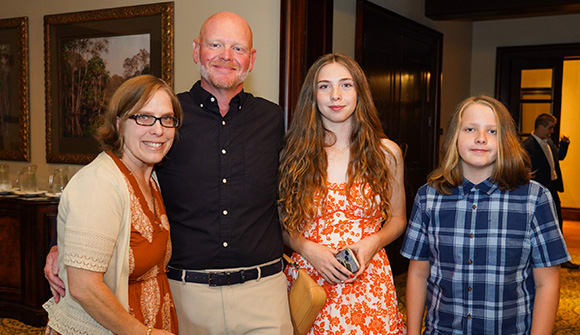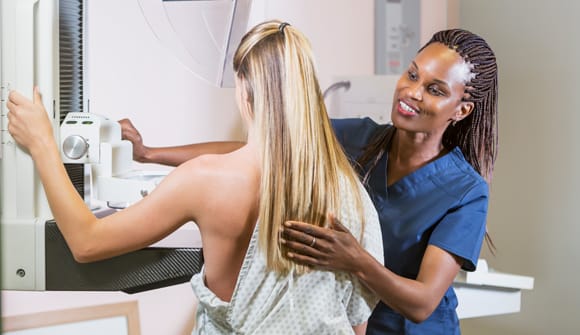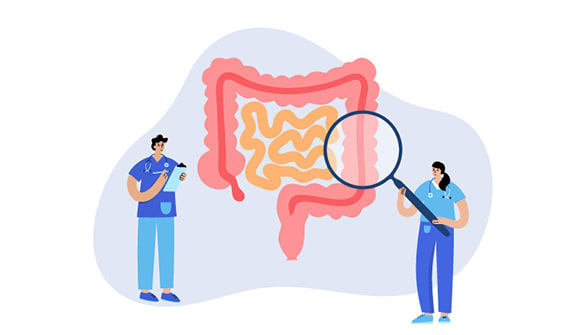Double diagnosis
Advice from mom who faced two cancers: ‘Don’t give up.’
Article Date:

Finding out you have cancer is difficult enough, but imagine being diagnosed with two different types of cancers within a couple of months.
This is the situation 44-year-old Jennifer Taylor faced in 2020.
It all started with a swollen ankle.
“I was shaving my legs and noticed one ankle was really swollen,” said Taylor. “I suddenly had this moment of paranoia where I thought I might have a blood clot.”
The wife and mother of two went to her local urgent care center.
From benign to aggressive
Taylor has neurofibromatosis, a genetic condition that causes tumors (neurofibromas) to develop on nerve tissue. Because of this, the urgent care doctors advised her to follow up with Baptist MD Anderson Cancer Center.
“Because these tumors are often benign, the condition doesn’t get nearly the attention and awareness it deserves,” said Baptist MD Anderson neuro-oncologist Robert Cavaliere, MD. “But even benign tumors in the wrong place can cause serious problems.”
And occasionally, these neurofibromas can manifest as more aggressive tumors, he explained. In Taylor’s case, the lump on her ankle was a type of sarcoma known as a malignant peripheral nerve sheath tumor, which is an aggressive cancer of the cells that form the cover of the peripheral (outside the brain and spinal cord) nerves.
“This type of sarcoma is very rare,” said Baptist MD Anderson medical oncologist Wassim Samra, MD. “It affects just one in 100,000 people, but for those with neurofibromatosis, you’re looking at around one in 10.”
Orthopedic surgeon Robert Wilson, MD, who performed Taylor’s sarcoma surgery, stressed that having neurofibromatosis “doesn’t mean you're destined to get cancer, but your risk is certainly higher.”
Mammogram reveals second cancer
While preparing for her sarcoma treatment, a routine mammogram revealed Taylor also had breast cancer.
“It was small and curable,” said radiation oncologist Cynthia Anderson, MD. “It’s really to her credit that she didn’t let her mammogram slip.”
Treating patients with multiple cancers requires expertise from a multidisciplinary team. It took a series of highly coordinated conversations between the sarcoma and breast teams to develop the appropriate sequence of treatments for Taylor. The team included Drs. Anderson, Cavaliere, Samra and Wilson, along with hematologist oncologist William Hammond, MD, surgical oncologist Christopher Pezzi, MD, and breast medical oncologist Lara Zuberi, MD.
Fortunately, the chemotherapy for sarcoma was strong enough to also treat the breast cancer. Taylor also had nine weeks of radiation treatments. The surgeries on her breast and leg were performed during one trip to the operating room. Remarkably, Taylor, who is a behavioral health counselor, continued to work during her treatments.
“I just took off the weeks I had chemo during that six-month period,” she said.
Because the cancer on Taylor’s leg was coming from her nerve, Dr. Wilson had to remove the nerve, which left her with permanent numbness on the bottom of her foot.
“Walking around barefoot, especially in the middle of the night, is really strange,” said Taylor. “One foot feels the cold tile floor and the other doesn’t. It’s just weird, so now I wear socks.”
Knowing your body
Taylor’s doctors said her ability to recognize a change in her body and get immediate medical help should be commended.
“It takes a certain level of courage to seek medical attention,” said Dr. Anderson. “She’s a remarkable person, and her story, courage and self-awareness should serve as an example to others.”
What advice does Taylor have for others facing cancer?
“Listen to your body. When you need to rest, rest, and when you need to eat, eat,” she said. “And most importantly, don’t give up. I had an aggressive cancer, and I didn’t give up and I’m still here.”
If you notice a change in your health, make an appointment with your primary care physician. If you don’t have one, call 904.202.4YOU (4968) and a Baptist Health care coordinator will help you find the right provider for you. Or, ask your doctor for a referral to Baptist MD Anderson Cancer Center. Through its relationship with MD Anderson Cancer Center in Houston, patients in the Jacksonville area have access to cancer treatments that are among the most advanced in the nation.



